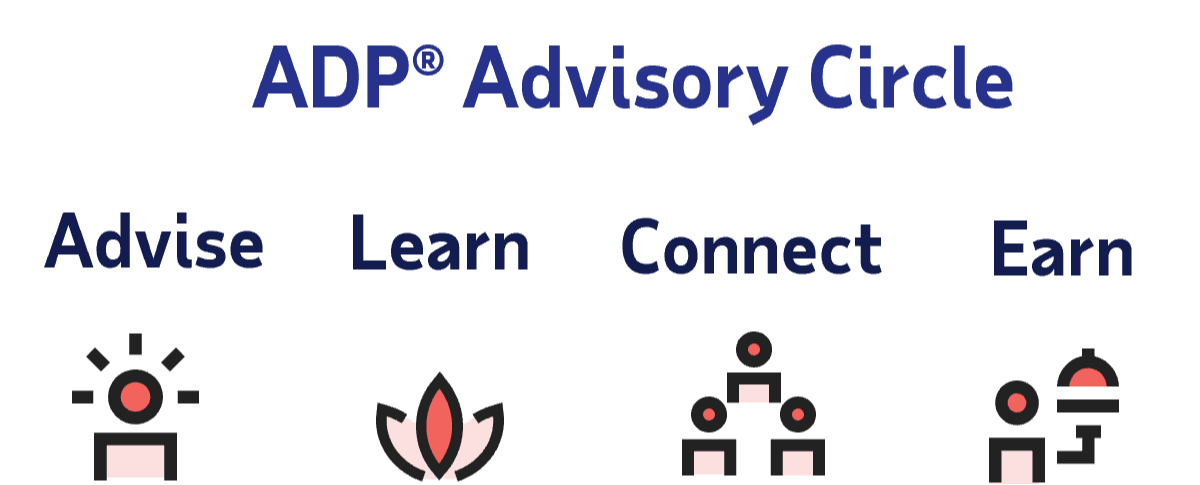HR Newsletter
Posted on: April 24, 2024
Minimum Wages & Compliance Changes

Below is a summary of compliance requirements that took effect recently or will take effect soon.
TABLE OF CONTENTS
Federal updatesState, district and local updates |
The minimum wages and effective dates below are not exhaustive. There may be additional state and local jurisdictions that have scheduled increases or additional employees (EEs) that are impacted.
Check the government sites that apply to your jurisdiction over the upcoming months to help ensure compliance with changing minimum wage rates and their effective dates.
State and district minimum wage increases
April 1, 2024
California |
Employers must pay restaurant workers at a national fast food chain establishment at least $20.00 per hour. |
July 1, 2024
California* |
The minimum wage for covered healthcare workers increases to:
|
District
|
The minimum wage increases to $17.50 per hour. |
Nevada |
The minimum wage increases to $12.00 per hour. |
Oregon |
|
*The Governor of California has signed into law Senate Bill 828, which delays the implementation of California's health care worker minimum wage from June 1, 2024 to July 1, 2024.
Local minimum wage increases
April 1, 2024
New York City,
|
The minimum wage for delivery workers increases to $19.56 per hour. |
May 1, 2024
Bellingham,
|
The minimum wage increases to $17.28 per hour. |
July 1, 2024
Local Jurisdiction |
Hourly Minimum Wage Rate |
|
Alameda City, CA |
$17.00 |
|
Berkeley, CA |
TBD |
|
Emeryville, CA |
$19.36 |
|
Fremont, CA |
$17.30 |
| Long Beach (Hotel Workers) |
TBD |
| Long Beach (Concessionaire Workers) |
TBD |
|
Los Angeles (City), CA |
$17.28 |
|
Los Angeles (City) Hotel Workers |
TBD |
|
Los Angeles |
$17.27 |
|
Malibu, CA |
$17.27 |
|
Milpitas, CA |
TBD |
|
Pasadena, CA |
$17.50 |
|
San Francisco, CA |
$18.67 |
|
Chicago, IL (21 or more employees) |
TBD |
|
Chicago, IL (4 – 20 employees) |
TBD |
|
Montgomery County, MD (51 or more EEs) |
$17.15 |
|
Montgomery County, MD (11 to 50 EEs) |
$15.50 |
|
Minneapolis, MN (100 or fewer EEs) |
$15.57 |
|
St. Paul, MN (101 to 10,000 EEs) |
$15.57 |
|
St. Paul, MN (Six to 100 EEs) |
$14.00 |
|
St. Paul, MN (Five or fewer EEs) |
$12.25 |
|
Renton, WA (500 or more EEs worldwide) |
$20.29 |
|
Renton, WA (15 to 500 EEs worldwide) and all franchisees associated with a franchisor or a network of franchises with franchisees that employ more than 500 employees in aggregate. |
$18.29 |
|
Tukwila, WA (15 to 500 employees worldwide) |
$19.29 |
Federal updates
2024
DOL releases industry-specific guidance on expanded protections for nursing employees. The U.S. Department of Labor (DOL) has begun releasing industry-specific guidance that covers the agriculture, retail and restaurant, healthcare, education, and transportation industries and consists of a prerecorded presentation and answers to frequently asked questions.
March 11, 2024
DOL adopts new independent contractor test. The DOL has published a final rule that will change the test for determining whether a worker is an employee or independent contractor under the Fair Labor Standards Act.
March 20, 2024
Updated background check notice required. The Consumer Financial Protection Bureau has published an updated version of “A Summary of Your Rights Under the Fair Credit Reporting Act," a notice required to be provided by employers during the background screening process. The effective date of the new version of the summary notice is April 19, 2023, but the CFPB allowed employers until March 20, 2024 to start using the new version.
June 18, 2024
EEOC releases final rule on Pregnant Workers Fairness Act. The U.S. Equal Employment Opportunity Commission has issued a final rule that implements the federal Pregnant Workers Fairness Act.
July 1 , 2024
Federal minimum salary requirements for exemption to increase. The minimum salary required for the federal executive, administrative and professional exemptions from overtime increases to $844 per week (equivalent to $43,888 per year). The minimum total compensation requirement for the exemption for highly compensated employees increases to $132,964 per year, including at least $844 per week that must be paid on a salary or fee basis.












